Wo master - Kunst en Cultuur Eerder bekeken
Mediastudies
Varianten: Media, Cultural Industries and Innovation, Media, Digital Transformations and Society, Journalism (English taught), Journalistiek (NL)

Over de opleiding Open dag: 13 maart

Wil je meer weten over digitale en sociale media, over mediagebruik of journalistiek? Kies dan een van de vier tracks binnen de master Mediastudies. Alle tracks duren anderhalf jaar (90 ECTS).
Journalistiek (Nederlandstalig)
Een gezonde samenleving heeft goede journalistiek nodig. Hoe en waarom is de journalistiek zo aan het veranderen? Hoe maak je zelf onafhankelijke, betrouwbare en boeiende journalistieke verhalen? In deze track word je opgeleid tot verslaggever en leer je kritisch denken over wat journalistiek inhoudt. Je ontwikkelt zowel praktische vaardigheden als academische kennis.Voor de tracks Journalistiek en Journalism geldt een selectieprocedure.Journalism (English-taught)
Are you passionate about news and do you want to report and analyze current affairs? Do you want to know why journalism is transforming so quickly nowadays? This track trains students from diverse parts of the world to become international journalists, with in-depth academic knowledge in the field of Journalism Studies presented by journalism researchers and intensive training by experienced journalists, offering a solid foundation in the skills that are needed to succeed in journalism today.For th...
Keuzes binnen de opleiding
-
Want to understand how new media technologies are used to create innovative formats and ways of storytelling, and how media innovation and start-up culture are rooted in creative processes?
Sign up now for the Open Day on Friday 13 March!
In this MA students explore how media are produced and (re-)used in a digital era. You study how new media technologies enable innovative formats and distinctive practices of media use, re-use and consumption. Key to this MA track is the insight that all innovation starts from creativity. Yet new start-ups in cultural and media production also need to balance commercial interest and creative drive. Students are invited to put academic knowledge into creative practice - building upon a profound understanding of how media industries have developed over time, how media genres evolve and how changing media (re-)use plays into economic, policy, organizational, labour and legal issues, including piracy, web streaming, and remixing of media content.
Kennismaken met deze variant?
-
This MA programme offers a critical exploration of digital media within contemporary networked societies and trains students to work with (big) data in a responsible way.
Media platforms (including social media) have changed the fabric of everyday life and society. This has had important implications for how we inform ourselves, with whom we connect and in which ways, how we organize our daily lives, and how we perform as citizens. Besides increased access to information and connectivity, digital media have also increased divides in society and created new ones. Moreover, who can participate in the digital society depends on levels of literacy and critical understanding of the digital media that surround us. Knowledge of the ways these quickly emerging communication infrastructures are fundamentally transforming society is indispensable. At a time when intensive data-gathering and analysis is key for companies and governments, this MA programme's theoretical approach to social media, platforms and government technology – including their data-driven impact on society – helps students in understanding and reflecting on critical issues in order to respond to current societal transformations. From a practical perspective, students are trained to investigate data and digital technology in the context of social, political and economic change.Sign up now for the Open Day on Fri
Kennismaken met deze variant?
-
Are you passionate about news and do you want to report and analyze current affairs? Do you want to know why journalism is transforming so quickly nowadays?
This internationally oriented programme trains students from diverse parts of the world to become journalists, with in-depth academic knowledge in the field of Journalism Studies presented by journalism researchers and intensive training by experienced journalists, offering a solid foundation in the skills that are needed to succeed in journalism today.Theoretical Journalism Studies courses enable students to reflect on the nature of journalism as a profession and stimulate critical thinking about the future of news reporting. You will study how journalism culture and developments in globalization, citizenship, politics and digital journalism interrelate, while learning how to apply appropriate research methods and theories in empirical academic research focused on understanding the field of journalism.The English-taught Master's track in Journalism takes a year and a half and has a study load of 90 ECTS. In the first two semesters, students will take academic courses and practice journalism skills. During the third and last semester students work on their master's thesis. They either complete an internship with a news organization or choose to work on an extended thesis.Sign up now for the Open Day on Friday 13 Marc
Kennismaken met deze variant?
-
Een gezonde samenleving heeft goede journalistiek nodig. Hoe en waarom is de journalistiek zo aan het veranderen? Hoe maak je zelf onafhankelijke, betrouwbare en boeiende journalistieke verhalen?
Door de wol geverfde journalisten begeleiden je intensief bij het ontdekken, onderzoeken en vertellen van die journalistieke verhalen, binnen en buiten onze newsroom. Je leert crossmediaal te werken in tekst, beeld en geluid voor verschillende platforms: online, televisie, radio, print. Verdieping, specialisatie en een ondernemende houding zijn daarbij van groot belang. Zo kun je als professional aan de slag op een redactie of je eigen onderneming starten.
Je bestudeert hoe nieuwsmedia werken en in ontwikkeling zijn, wat onze journalistieke cultuur kenmerkt en hoe deze zich verhoudt tot bijvoorbeeld politiek en literatuur. Ook ontwikkelingen als globalisering, burgerschap en digitalisering komen daarbij aan bod. Je leert welke wetenschappelijke methodes en theorieën je het beste voor je onderzoek kunt gebruiken.
Dit programma heeft plaats voor max. 30 studenten. In het voorjaar doe je mee aan de selectieprocedure. Entreevoorwaarden: een bij aanvang van de master afgeronde universitaire bachelor en liefst een pakket van 30 ECTS uit de minor Minor Journalistiek (of vergelijkbare vakken aan een andere universiteit).
Kennismaken met deze variant?
- + Meer
Op Studiekeuze123 kun je informatie vergelijken. Op de website van de onderwijsinstelling kun je verder lezen als de opleiding je aanspreekt.
Bekijk instellingswebsiteBekostiging: Overheid
Studiepunten: 90 ECTS
Toelating & selectie € 2.694 wettelijk collegegeld in 2026 / 2027
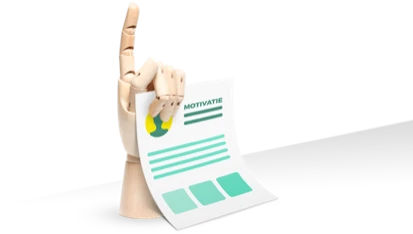
Om toegelaten te worden tot een opleiding moet je aan bepaalde eisen voldoen.

Toelatingseisen
Om aan een master te kunnen starten, heb je een bachelordiploma nodig.
Sluit je bachelor niet direct aan op de master, of stroom je door van hbo naar wo? Dan moet je meestal een schakelprogramma of premaster volgen. Lees meer over schakelprogramma’s (Schakelprogramma, is dat nodig? - Studiekeuze123)
Collegegelden
Wettelijk collegegeld
Wettelijk collegegeld
Wettelijk of instellingscollegegeld?
Heb je recht op het wettelijk collegegeld of betaal je het instellingscollegegeld? Gebruik onze Collegegeldwijzer
Hoe hoog is het instellingscollegegeld? Bekijk het op de website van de universiteit
Meer weten?
Belangrijke data
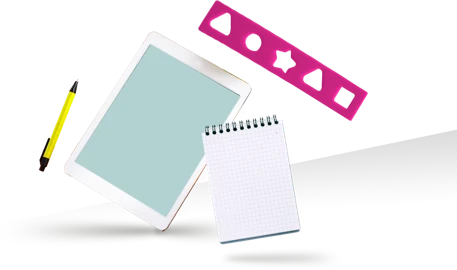
Mis geen belangrijke gebeurtenissen. Check belangrijke data ook bij de opleiding zelf.

-
13
maart 2026
Open dag / avond
Meer open dagen -
1
mei 2026
Aanmelddeadline opleiding -
1
september 2026
Start opleiding
Alle startmomenten
Tijdens de opleiding 76 eerstejaars
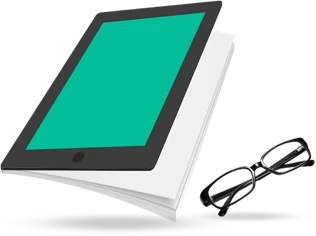
Geen enkele opleiding is hetzelfde. Kijk daarom naar de kenmerken van een opleiding.

Studeren bij deze instelling
Studieadvies
We hebben onvoldoende betrouwbare informatie over dit onderwerp.
Studieverloop
Diploma binnen 3 jaar
Meer weten?
Tevredenheid 3.9/5.0 algemene tevredenheid
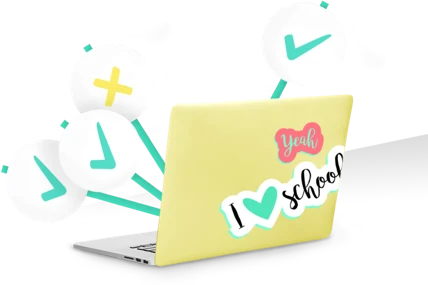
Hoe beoordelen de (oud)studenten deze opleiding?

Nationale Studenten Enquête
Hoe tevreden waren studenten in 2025 over aspecten van deze opleiding?
|
Studenttevredenheid
Meer informatie | 3.9 / 5 |
|---|---|
| Sfeer | 4.5 / 5 |
| Studiefaciliteiten | 4.2 / 5 |
| Studie opnieuw kiezen | 3.9 / 5 |
| Inhoud en opzet | 3.9 / 5 |
| Aansluiting beroepspraktijk | 3.9 / 5 |
|
Studenttevredenheid
Meer informatie | 3.9 / 5 |
| Sfeer | 4.5 / 5 |
| Studiefaciliteiten | 4.2 / 5 |
| Studie opnieuw kiezen | 3.9 / 5 |
| Inhoud en opzet | 3.9 / 5 |
| Aansluiting beroepspraktijk | 3.9 / 5 |
| Docenten | 4.0 / 5 |
| Lesstof in het Engels | 4.5 / 5 |
| Studiebegeleiding | 3.8 / 5 |
| Toetsing en beoordeling | 3.8 / 5 |
| Betrokkenheid en contact | 4.2 / 5 |
| Studiedruk |
Oordeel afgestudeerden
Over de studie Mediastudies
Studeren met een ondersteuningsbehoefte
Veel studenten hebben tijdens hun studie behoefte aan extra voorzieningen of flexibiliteit in het onderwijs. Dit kan komen door een aandoening zoals dyslexie, een chronische ziekte, psychische klachten, maar ook topsport of ondernemerschap tijdens de studie. Studenten beoordeelden hoe tevreden ze zijn over de ondersteuningsmogelijkheden bij hun onderwijsinstelling.
Na afstuderen 41% van de werkenden vond een baan op niveau
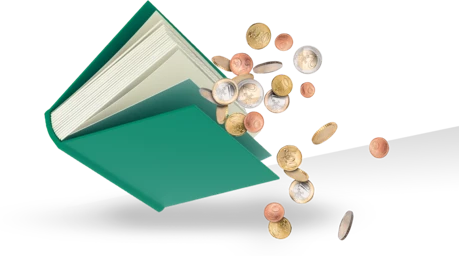
Lees hoe het studenten van deze opleiding in de eerste periode na hun studie vergaat op de arbeidsmarkt.

Meest gekozen beroepen (na deze studie)
| Specialisten op het gebied van reclame en marketing | 14% |
| Journalisten | 11% |
| Professoren en andere onderwijsgevenden in het hoger onderwijs | 8% |
| Specialisten op het gebied van beleidsadministratie | 7% |
| Specialisten op het gebied van public relations | 6% |
Werkgelegenheid na deze studie
Bij deze studie zijn de verwachtingen voor het vinden van een baan goed.
Een (substantiële) baan vinden...
duurt gemiddeld 13 maanden.31% krijgt een vast contract.
Match tussen studie en beroep
59% vond een baan binnen het vakgebied van de studie
41% vond een baan op het niveau van de studie
Startsalaris
Het startsalaris na deze studie is lager dan het gemiddelde van alle wo master studies.
€ 2.922
Geschatte startsalaris na deze studie
€ 3.150
Geschat van alle wo master studies
Gemiddelde werkweek
Hoeveel uur afgestudeerden gemiddeld werken bij hun huidige baan.
35 uur
Het percentage zelfstandigen
Het aandeel mensen dat werkt als zelfstandige of ondernemer.
8%
Contact Contact 050-3638100

Meer weten over de opleiding? Neem contact op met Rijksuniversiteit Groningen


Meer informatie
Bezoek ook de website van Rijksuniversiteit Groningen
Bezoek website van Rijksuniversiteit Groningen


